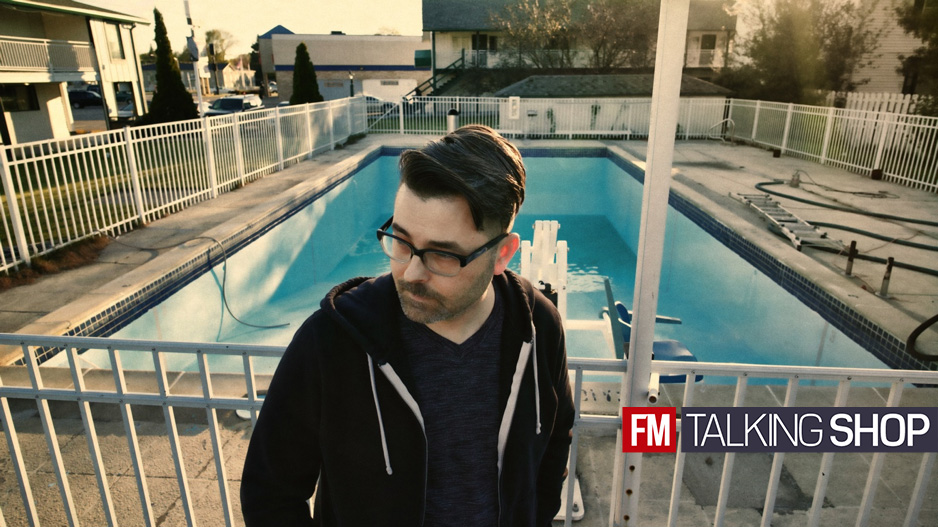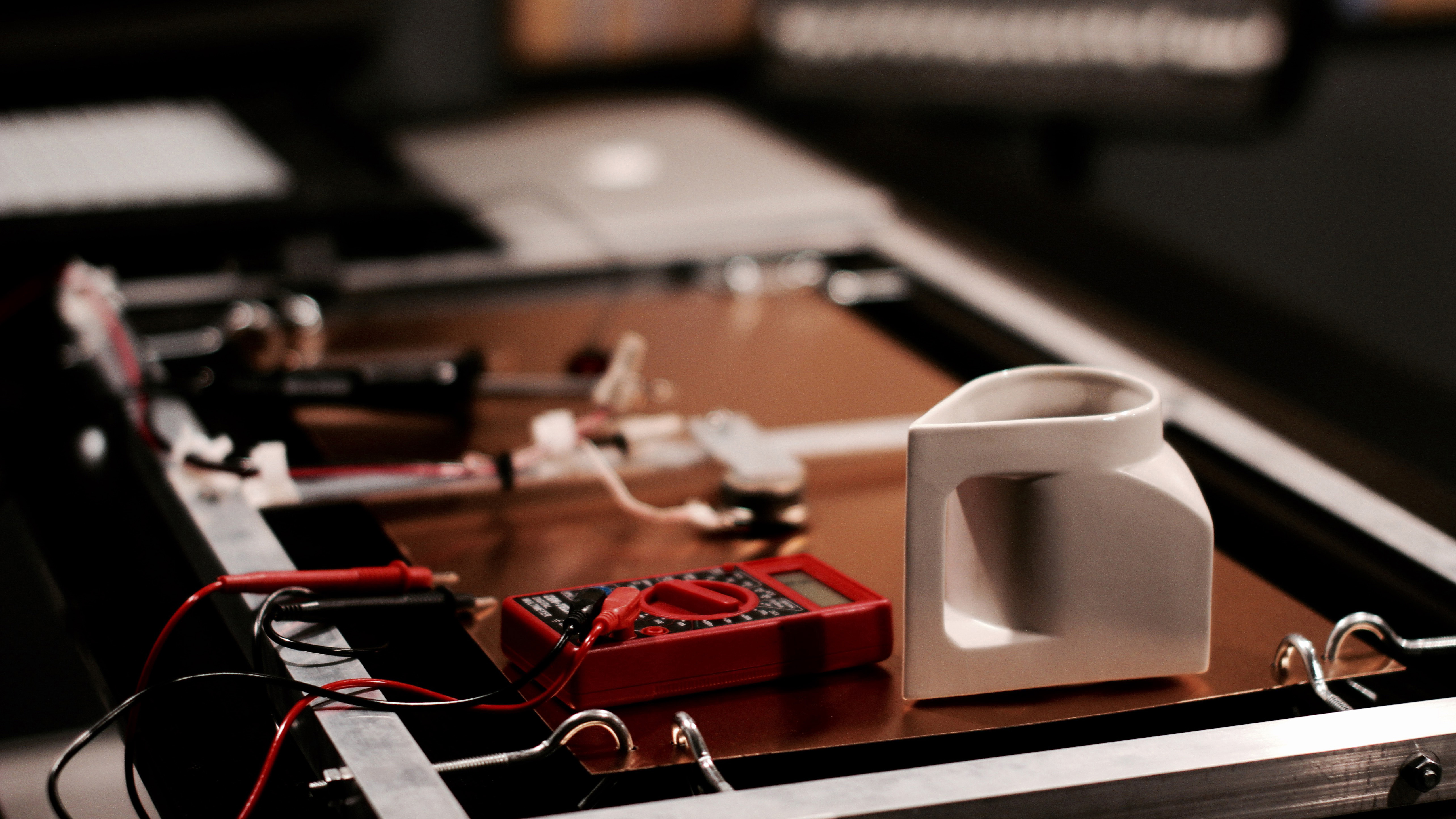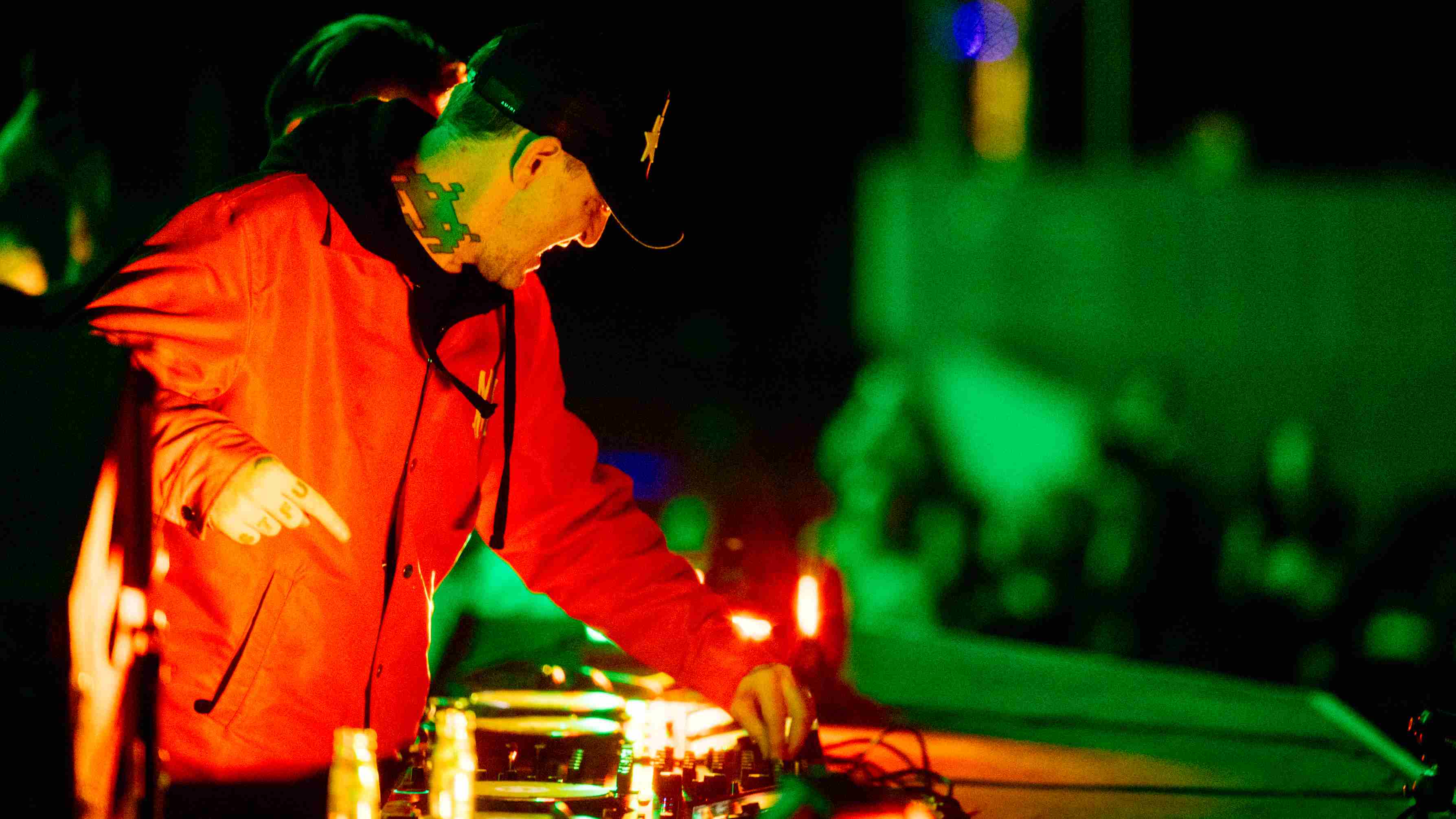Talking Shop: Mike Schommer
The Detroit dub techno master talks gear

After rising to prominence in ’90s as co-founder of lauded dub techno label Deepchord, Mike Schommer took a 15-year hiatus from music to focus on family life and other projects.
When we heard he was returning to techno-fold FM jumped at the chance to find out how his approach to production has evolved over those lost years...
Check out Mike's return on his new EP Anamnesis, out now via Mosaic Records.
When did you start making music, and how did you first get started?
“During the early ’90s, I played guitar in various industrial and punk rock bands that gigged in the Detroit and Port Huron area. We were recording an album in a local studio owned by Chris Troy around the time when he and Rod Modell released Waveform Transmission on Silent Records. During their release party, I listened to the entire album and was mesmerized by the ominous pads, analogue growls and shortwave radio transmissions... haunted me for weeks!
“I needed to find out more, so I connected with Rod, and we began to talk. While discussing music (over the course of countless cups of coffee), we developed a great friendship. It was through his mentorship that I discovered a whole new world of music. I soon gave up my guitar for a synthesizer, and I never looked back.
“Rod and I had some common ground, and we eventually started to collaborate on a couple of projects. Our first venture was an experimental soundtrack for a television documentary, then we worked on a few things for a Norwegian label. Somewhere along the way, I started creating beat oriented tracks on a buggy Ensoniq EPS that was always crashing. I would sequence my homemade analogue kick drum with a cv controller and pump everything through a pile of effects.
Get the MusicRadar Newsletter
Want all the hottest music and gear news, reviews, deals, features and more, direct to your inbox? Sign up here.
“On a whim, I sent a cassette demo to Richie Hawtin at Plus 8 Records. To my surprise, I received a phone call one afternoon with an offer to become an artist on a newly formed sub label (Development). I continued to produce more material, but Development folded in 1997 after its second 12”.
“I used the downtime to refine my production techniques and hunt for new studio equipment. I was searching for esoteric effect units, tape echoes, and vintage synths. The more difficult it was to find... the more I wanted it. I didn’t care if it worked or not. If I couldn’t fix it myself, I would drop it off at Electronic Innovations on 9 Mile and have it resurrected.
“You had to get your hands on the gear back then and play with it for a while to make a judgment. You couldn’t just hop on YouTube and check out an Oberheim Xpander demo. You had to track one down for yourself.
“Throughout all of this, Rod and I discussed the possibility of starting a label. After talking things through for a while, we decided that the time was right to fire up Deepchord (a term that Rod regularly used to describe those “deep chord” hits found in our tracks). The label focused on our personal music which would later be classified as dub techno.
“At the time, whenever someone asked me to describe our music I would tell them, “It’s minimal, lo-fi, experimental, dirty, repetitive techno music… and you’ll probably hate it.” The term ‘dub techno’ wasn’t even in our vocabulary back then. We were just making music that we enjoyed.
“Even though there wasn’t a clear direction or explanation of the genre, that didn’t concern us. We were producing music that we wanted to listen to, and we were doing it on our terms. To our surprise, the label took off, and we sold a number of records. After a fantastic run with the label, I stopped recording to focus on family life and a new business startup, while Rod continued to record under the Deepchord moniker.
“It wasn’t until recently (at the encouragement of Rod and my wife Tarah) that I rebuilt a studio and started to record again. Today, I'm feeling great about making music, and there’s an excitement in the air that I haven’t felt since those early Deepchord days.”
Tell us about your studio/set-up
“Recently, my wife and I moved out to the country and purchased a home for our growing family. When I decided to produce music again we built a basement studio. During the planning process, I wanted to make sure it felt less like the environment we had at our Detroit loft (a cluttered mess of gear, cables, and stands) and more of a mature place where I could view art, drink coffee and just spend time thinking.
“What I love most about the studio is that it’s not just a productive place for me to work, but for my family as well. My daughter Veronica uses it for her vocals and listening to music, while my son Max uses it to produce his own electronic music. It’s a shared space where we can get creative and exchange ideas with one another.”
What DAW (or DAWs) do you use, and why did you choose it?
“When I first experimented with the use of a computer DAW instead of my analogue machines in the early 2000’s I absolutely hated it. I wasted many days working with buggy software on computers that didn't have enough processing power. All I wanted to do was stack 12 reverbs and six delays on a chord hit! Was I asking too much?
“I got so frustrated that I vowed to never use a computer again. After 20 years of struggling, criticising and denials I’ve finally accepted the fact that there can be a healthy balance between hardware and software in today’s studio. When I use a computer based DAW, I usually go to Ableton Live and pair it with a Push controller or something. Nothing too exciting there.”
What one piece of gear in your studio could you not do without, and why?
“To be honest, it’s difficult for me to choose anything specific. I’ve used different gear on every record that I’ve ever done. If I had to pick though, I would say the homemade items that I’ve put together. They offer the listener something personal and very special.”
What's the latest addition to your studio?
“I recently built a small custom plate reverb that I’m enjoying. Since it’s one of a kind, it has some very unique sonic qualities that could never be easily reproduced. When it’s not in use, I hang it on the wall and people often mistake it for modern art.”

What dream bit of gear would you love to have in you studio?
“A Fairlight CMI Series I or II with the waveform drawing capability (probably the IIx since it has MIDI and it’s 8 bit). There’s one on eBay right now that I find my mouse hovering over the Buy Now button on.”
When approaching a new track or project, where do you start?
“I usually start off by manipulating the effects on the main hook idea until everything starts to speak to me. If there’s something worth exploring further, I will drop in a kick (acting as a metronome) and begin working on the counter-hook. It’s at this point where I spend the vast majority of my time experimenting with various effects.
“Once I have a handle on the hooks and effects, I slide a bassline in along with percussion elements that complement the rhythmic patterns. Finally, the sonic icing and melodic elements are introduced. When all of the components are ready, I begin the arrangement. Since I usually know where I want a track to end up, it’s more effective for me to strip elements away from the mix and let the song structure reveal itself to me.
“When I’m 90% happy with the track, I spend hours in a finalising cycle (mixdown, then critical listening, then adjustments, then repeat). That last 10% is usually the most difficult and can last weeks.”
What are you currently working on?
“In addition to my latest 12” EP on Steve O’Sullivans Mosaic Records (Anamnesis), I have a 12” coming out on another label tentatively schedule for the end of the year. I’m also working on some new material for a couple of comps and there is a possible collaboration in the queue. Since recently announcing my return to music, things have gotten busy!”
Mike Schommer's essential music making tips...
Use and abuse what you have
“Some musicians are just getting started, and I can see where it might be discouraging to think that you need to spend thousands of dollars to make great music. You don’t. I’ve done records with $10k synths and $100 synths and for the most part, I’ve always been able to carve out tones from them that I’m happy with.
“The most valuable piece of gear, in my opinion, is the one you know inside and out. The one you can use (and abuse!) in ways that no one else can.”
Progress is progress
“Before I was a family man, I would lock myself in the studio for hours at a time where I could completely focus on making music without any distractions. It took me many years to realise that I couldn't work that way any longer.
“With a large family and other responsibilities, I don’t always have the luxury of late night recording sessions. The key for me is to always keep moving forward no matter how small the increments. Even if you think it’s small and insignificant progress… it is still progress and that’s the key.”
Don’t wait for perfection
“There are many talented artists out there sitting on hours of amazing music that will never get published because they don’t think it’s ‘good enough’. Obviously, every artist strives for perfection, but being overly concerned about achieving perfection is a sure fire way to stunt any budding musical career.
“You should never be 100% satisfied with your work anyway. You need to be able to look back weeks, months and years and see that you have grown as an artist. My challenge to all of those that are sitting on piles of unreleased tracks is this: Striving for perfection is good… achieving perfection will never happen, so get your music out there now!”


Future Music is the number one magazine for today's producers. Packed with technique and technology we'll help you make great new music. All-access artist interviews, in-depth gear reviews, essential production tutorials and much more. Every marvellous monthly edition features reliable reviews of the latest and greatest hardware and software technology and techniques, unparalleled advice, in-depth interviews, sensational free samples and so much more to improve the experience and outcome of your music-making.
“A fabulous trip through all eight songs by 24 wonderful artists and remixers... way beyond anything I could have hoped for”: Robert Smith announces new Cure remix album
“I have an original 909 – every time I try to use it I feel like I’m ruining it”: House hero Riva Starr on his studio essentials and his love of analogue synths










